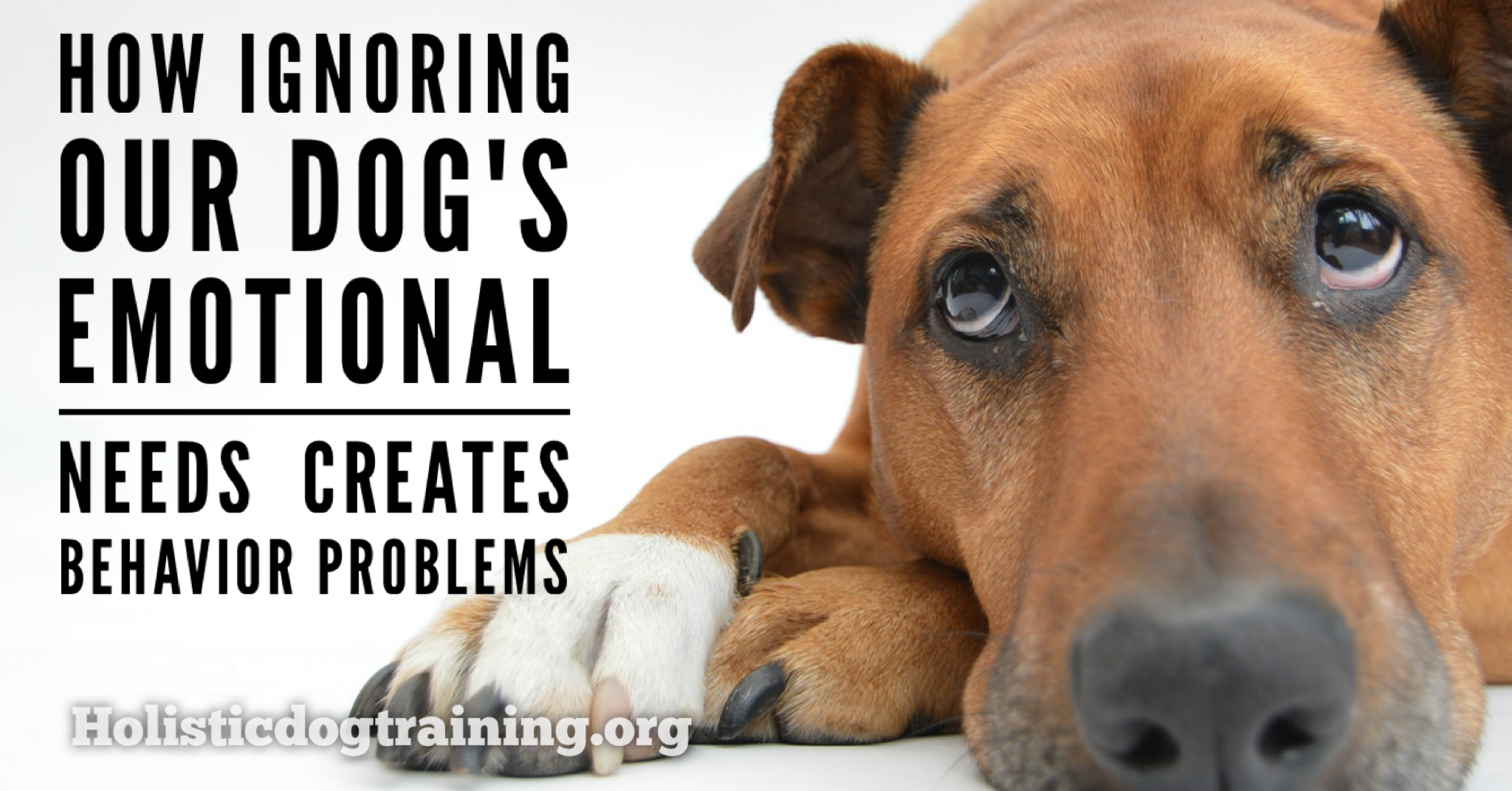STORY AT-A-GLANCE
Dogs feel emotional neglect
Dog behaviors are a directly related by how their early developmental emotional needs are met
scientists suggest that dogs have the emotional potential of a five-year-old child
Guardians should make dog’s lives more joyful, and support their emotional development and evolutionary process.
Is it possible for your dog to feel emotionally neglected? Many trainers and behaviorists will disagree with me.
However, Pythagoreans long ago believed that animals experience the same range of emotions as humans (Coates 1998). Numerous studies confirm it, years of experience have shown me that they do, and this can cause major behavior issues.
Lots of people are always looking for the love we didn’t get from a parent-figure to repair our childhood attachment trauma.
As a child who was taken from my mother at a very young age, I went through several stepmothers and caregivers for the first 18 years of my life. Over the years I’ve realized that emotional neglect isn’t something (most) parent-figures do consciously.
My parent’s inability to fully bond with me, or help me co-regulate my emotions came from the lack of this experience with their parents.
As a male growing up in a central/south European, and middle eastern culture, it was quite a challenge. I lived in a society that didn’t understand my emotional needs, and didn’t understand how these unmet needs resulted in all kinds of dysfunctional (trauma-based) behaviors.
When I look into dogs and their family situation, and how they have been torn apart from their families at six to twelve weeks old, It’s become very clear to me that many of the behaviors I see are a direct result of humans not understanding how to meet their early developmental emotional needs.
Here are a few of the behaviors:
Separation anxiety
Resource guarding
Aggression or reactivity
Fear of strangers
Difficulty recognizing friend or foe
Compulsive behaviors
Begging or stealing food
Not coming when called
Lack of ability to bond
Jumping, nipping, or attention seeking behavior
Poor eating habits
It becomes clear that based on scientific evidence that confirms dogs' mental abilities are close to a human child age 2 to 2.5 years, and have the emotional potential of a five-year-old child, that these traumatic separations and environmental factors can have a toll on their ability to form healthy relationships with their caregivers, and even other dogs. .
"Scientists find it hard to accept the idea that animals have feelings,…Most people who live with dogs understand this intuitively."- says neuroscientist Gregory Berns.
Dr Franklin D. McMillan, the director of well-being studies at Best Friends Animal Society, has this to say about emotional neglect in our pets:
“Realize that the most common form of emotional maltreatment is emotional neglect, which is the unintentional failure to meet an animal's emotional needs. The critical point here is that emotional neglect can occur even with the most caring owners—they may simply be unaware of the pet's emotional needs.”
Just like most parental figures who emotionally neglect their children, dog parents don’t do it on purpose. It happens because of an outdated assumption that dogs don’t have emotional needs like we do.
Here are some ways people can emotionally neglect their dogs:
1. The dog parent is unable to help the puppy navigate/process stressful emotions because they misread signs, or they have problems with this in their own lives.
An example of this would be that very young puppies who enter a new home are expected to adjust and understand complex human behaviors in a dog-unfriendly environment with no species-appropriate conditions.
2. A dog parent who shuts down or punishes a dog for feeling emotions like:
Fear
Anger - commonly called aggression
Sadness
Disgust
Excitement
Surprise
Anxiety
Shame
Contempt
Satisfaction- feeling accomplished
Guilt
Boredom
Pride
Anticipation
Gratitude
Loneliness
Frustration
Jealousy
Disappointment
Rage
I understand some of you will roll your eyes thinking I’m humanizing dogs, but dogs are mammals with emotions just like us. They may not have an ego that will justify those emotions, but they definitely have an awareness of self.
3. A puppy comes to a trusted human with a painful or confusing experience, but they unconsciously downplay or deny the puppy’s reality.
“It’s okay,” “No,” and “Go to your crate” are very common responses, and many other positive or negative punishers in response to the puppy’s experience.
4. A pressure to perform or to achieve the desired service, no matter how the dog feels about it.
This comes with our expectations of how the dog should perform and please us as a pet, service dog, guard dog, companion, or show dog.
5. Dog parents who label the puppy’s reactions as “dramatic,” “aggressive,” unpredictable,” “stubborn”or “vicious.” “Even in fun, labeling can be disabling,” according to Haim Ginott, child psychologist. Dogs are no different. Words have energy behind them.
Labels can damage the human/dog relationship as over time, dog parents begin to see their dog exclusively according to the label. It is as though a single word can describe a complex dog completely.
6. Puppy’s needs are often overlooked, or their boundaries are violated— causing dysfunctional relationship dynamics.
We see these violations very often in alpha or pack leader type ( authoritarian parenting styles), averse feeding protocols, poorly executed introductions to people and other animals, not respecting a dog’s body by physically forcing it to do something, and poor leash and house training methods.
Becoming aware of how we affect our dogs' lives negatively by being unaware of our neglectful behavior is the first step in a holistic approach to a healthy dog parenting style.
It’s important to understand the trauma we cause by neglecting our dogs emotional needs with common practices like:
Trying to be a “pack leader”
Domination
Crate training
Leash training techniques
Authoritarian parenting styles
Feeding choices
Housing conditions
Breed trait inappropriate expectation
Breeding practices
Shelter conditions
Being aware of, and changing the way we destroy a dog’s family dynamics and development through early adoptions into inexperienced homes, will also help us make dog’s lives more joyful, and support their emotional development and evolutionary process.
Need help meeting your dog’s emotional needs, or help with any other behaviors not listed? Go to my website holisticdogtraining.org for more information, or to book a virtual, live- online training appointment.



